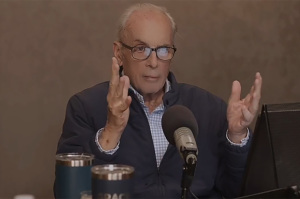Why Does Pentecost Matter?
The pews are rarely packed on Pentecost Sunday although the day is often described as the "birthday of the Church" and is as significant as Christmas and Easter.
The day comes 50 days after Easter, hence the name "Pentecost," which is a Greek word for "fifty." On Pentecost Sunday, some churches use red color as the theme for decoration, symbolizing the fire and joy of the Holy Spirit, as they commemorate the coming of the Spirit on the early followers of Jesus.
"When the day of Pentecost came, they were all together in one place. Suddenly a sound like the blowing of a violent wind came from heaven and filled the whole house where they were sitting. They saw what seemed to be tongues of fire that separated and came to rest on each of them. All of them were filled with the Holy Spirit and began to speak in other tongues as the Spirit enabled them," Acts 2:1-4 records.
Many see the outpouring of the Holy Spirit on the disciples of Jesus on the first Pentecost as the birth of the church. For Jesus, before his Ascension, instructed his disciples not to leave Jerusalem but wait for "the gift my Father promised." He added that they would receive power and be his witnesses in all Judea and Samaria and to the ends of the world when the Holy Spirit came on them, according to Acts 1:4, 8. This came true on the day of the Pentecost.
The first Pentecost was not a one-time incident. Until today, whoever puts faith in the Gospel of Jesus receives the Holy Spirit, though not necessarily in the same fashion as happened in the first century when many visible signs followed. It is through the Sprit that one can appropriate God's promises in Jesus by accepting Him as the Lord and Savior. As Peter said on the day of the Pentecost, "Repent and be baptized, every one of you, in the name of Jesus Christ for the forgiveness of your sins. And you will receive the gift of the Holy Spirit. The promise is for you and your children and for all who are far off – for all whom the Lord our God will call." (Acts 2:38, 39)
Further, it is the Holy Spirit – co-equal with God the Father and God the Son, as per the doctrine of Trinity – who keeps Christians as He indwells in them.
Pentecost also underlines the importance of the Church in God's work. God sent the Holy Spirit to Jesus' disciples on an occasion when "they were all together in one place." And what followed was building of a community, a model community.
"They devoted themselves to the apostles' teaching and to fellowship, to the breaking of bread and to prayer. Everyone was filled with awe at the many wonders and signs performed by the apostles. All the believers were together and had everything in common. They sold property and possessions to give to anyone who had need. Every day they continued to meet together in the temple courts. They broke bread in their homes and ate together with glad and sincere hearts, praising God and enjoying the favor of all the people. And the Lord added to their number daily those who were being saved." (Acts 2:42-47)
What's more, Pentecost reflected a key mission of the church. By enabling the disciples to declare God's wonders in various languages, the Holy Spirit perhaps showed that the church needs to reach out to various cultural, racial, ethnic and linguistic groups rather than become an affinity group. It taught the church to honor diversity.
"Now there were staying in Jerusalem God-fearing Jews from every nation under heaven. When they heard this sound, a crowd came together in bewilderment, because each one heard their own language being spoken. Utterly amazed, they asked: 'Aren't all these who are speaking Galileans? Then how is it that each of us hears them in our native language?'" (Acts 2:5-8)
The outpouring of the Spirit was for each of the believers gathered on the first Pentecost, irrespective of their background.
The birth of the church, in a historical sense, and the reflection of its centrality in God's ministry and its mission to reach out to all people groups while honoring local cultures and languages, as well as the indwelling of the Holy Spirit in all believers are perhaps reasons enough to treat Pentecost as significant as Christmas and Easter.





























